RUSH: I mentioned earlier that I, your host, am again being blamed for destroying the old media monopoly. And, by the way, they’re right about this. I don’t take this criticism as unjust or unfair. They’re absolutely right about it. And, you know, when they begin talking about it, they do, when you get ’em speaking honestly, they do say this. This is why I and this program have always been a target.
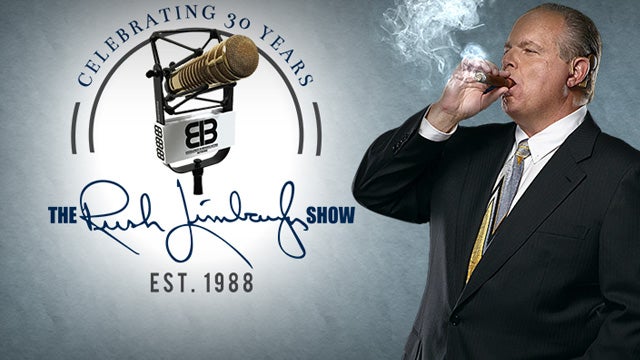
In 1988 when this program started, there were the three networks and CNN, the newspapers, and that was it. This program was the first national conservative media program outside of some magazines, and William F. Buckley’s Firing Line on PBS. This program was it. Literally CNN had not been on the air that long. It was the three networks, and they owned it. They had a monopoly on what was reported, what wasn’t reported, what the commentary on what was reported was.
So now we head to — let’s see here — yesterday afternoon, Headline News Across America, Carol Costello is talking to Douglas Brinkley. He’s back. Rice University history professor and official scholar of the presidency. They’re discussing John McCain and the lack of bipartisanship in our nation’s capital.
COSTELLO: Americans are much more alike than they are different. And when we talk about the extremes, I don’t think that’s the majority of Americans. I still believe most Americans are moderate, and they don’t have one — they don’t have, like, a defined set of ideology each. Like we’re human beings. We think a lot about —
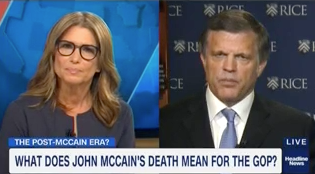 BRINKLEY: I completely agree with that.
BRINKLEY: I completely agree with that.
COSTELLO: Right. So why doesn’t that play out in our politics?
BRINKLEY: Because we’re — we are now have a media that people choose. One could listen to, you know, Rush Limbaugh or Fox News. One can go MSNBC or a more liberal NPR programming. There isn’t a Walter Cronkite figure that everybody’s tuning in on to get the same news in the evenings. And so it creates some disharmony.
RUSH: Isn’t it fascinating that that’s their fix? You know, Obama dreamed about this too. He commented on this a number of times. (imitating Obama) “We used to have common values. Every watched the same news every night. Everybody got the same facts and the same news. And it’s a shame we don’t have that anymore.” Oh, they would love to go back to those days.
Here’s Jon Meacham. He’s the former editor at Newsweek and wherever they’ll take him in the liberal media. This was this morning in Washington, the White House Historical Association held a forum on the presidents and the press. During a discussion of the evolution of opinion driven media, presidential historian Jon Meacham said…
MEACHAM: In 1921 radio comes along, television in the late forties, there’s something called the Fairness Doctrine.
RUSH: Here we go.
MEACHAM: We all own the public airwaves. So the idea was you could not express an opinion unless you gave equal time to both sides.
RUSH: Not true.
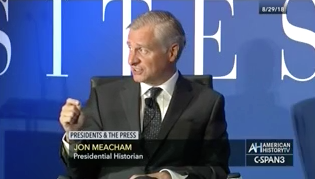 MEACHAM: So most people decided to stay out of that business altogether.
MEACHAM: So most people decided to stay out of that business altogether.
RUSH: It’s not true.
MEACHAM: And as part of a generalized deregulation move, President Reagan repealed that in the eighties. That’s ’86, ’87. Rush Limbaugh goes national in 1988. By 1992 he’s so important that his support of Pat Buchanan helps bring George H. W. Bush down in the ’92 New Hampshire primary. In ’96, you have Fox, MSNBC, CNN was founded in ’80, of course, but it did began its move — and so you had this period where we did have more or less — kind of — and part of it also is that’s the media world in which most of us grew up.
RUSH: Right.
MEACHAM: We’re accustomed to this idea of Cronkite and the New York Times and there was a conversation.
RUSH: Right. And we need desperately to get back to it. These people mischaracterize the Fairness Doctrine every time they talk about it. The Fairness Doctrine is not equal time. Equal time is a separate doctrine, it’s a separate theory or a separate regulation. And it applies in campaigns. But the Fairness Doctrine — let me briefly tell you what it is.
I worked in KFBK in Sacramento doing this show under the Fairness Doctrine! It didn’t stop me. It didn’t stop the management of KFBK. We had me, we had people that discussed carrot cake recipes at the holidays, we had people discussing local sewage problems. We covered the basics. I happened to be the only one talking about politics. But there was no limit. And we lived under the Fairness Doctrine.
The way it worked was, if I said something on the air that somebody in the community disagreed with, we invited ’em in, put ’em on the program. They didn’t get equal time. They got to appear. If I wanted to have them on for 10 minutes or 15, that’s what we did, but even that was not a requirement. The Fairness Doctrine was simply something that said there has to be an attempt at balance. But how you define balance is up to you.
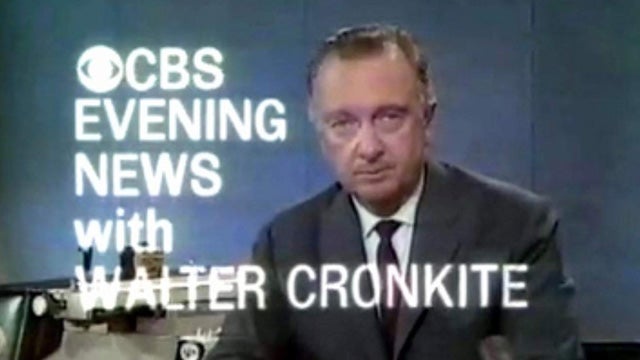
But Fairnesses Doctrine balance has never said that if you do three hours of conservatism you gotta follow it with three hours of liberalism. It’s never been that. So if you as a radio station, you do three hours of conservatism, maybe Sunday morning you do three hours of liberalism, bam, you’re balanced. If you do 10 hours a week of something, as long as you do an appreciable amount of time during the week doing something else, you’re balanced. It’s not equal time, and it doesn’t grant opponents automatic access.
These people don’t even know what the Fairness Doctrine is. All they think they know is that when it was repealed was when I finally had a chance to blossom. What they don’t know is I worked in Sacramento doing this exact show, for all intents and purposes, for three years under the Fairness Doctrine. It was not a limitation in any way, shape, manner, or form.
Anyway I gotta take a break. We’ll be back.
BREAK TRANSCRIPT
RUSH: Go back to this Jon Meacham sound bite, presidential historian, talking about how it was the lifting of the Fairness Doctrine that finally destroyed the monopoly that the mainstream media had. We don’t any longer have a Walter Cronkite. Well, we could, and it could be me. I mean, people would learn more on this program about both sides of every issue than anywhere else they could go in media.
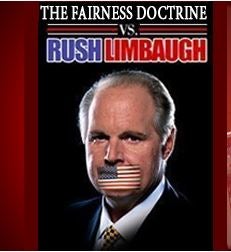 But, anyway, I want you to observe something, I want to point something out. Notice that back in the good old days — ahem — it was the three networks and the big newspapers and that was it. And the Fairness Doctrine was in play. What did it mean? The Fairness Doctrine meant that we didn’t have to hear from conservatism. The Fairness Doctrine meant that we wouldn’t have — this is by their own admission — the Fairness Doctrine meant we wouldn’t have to put up with Rush Limbaugh types. The Fairness Doctrine meant that there couldn’t be any opposition to us.
But, anyway, I want you to observe something, I want to point something out. Notice that back in the good old days — ahem — it was the three networks and the big newspapers and that was it. And the Fairness Doctrine was in play. What did it mean? The Fairness Doctrine meant that we didn’t have to hear from conservatism. The Fairness Doctrine meant that we wouldn’t have — this is by their own admission — the Fairness Doctrine meant we wouldn’t have to put up with Rush Limbaugh types. The Fairness Doctrine meant that there couldn’t be any opposition to us.
So what the hell was fair about it? This whole Fairness Doctrine thing they use as a crutch claiming that it was the last trick that Reagan played on everybody. That Reagan lifted the Fairness Doctrine when he heard about me and set me up to become what has happened here. And if Reagan hadn’t done that, then this show wouldn’t have happened. I can tell you unequivocally that that isn’t true.
The Fairness Doctrine has never been an obstacle in any aspect of my career at any time. What’s fascinating about it is that during the “golden age of media” when there was no conservative opposition in the media and we had a Fairness Doctrine, how can it possibly have been a Fairness Doctrine if they were able to use it to silence any media opposition?
I find it fascinating. The Fairness Doctrine somehow protected them? And yet when it was lifted, it opened things up? The Fairness Doctrine, in their telling, is what makes things fair. But it wasn’t. It didn’t help anybody oppose them. So it’s even entirely misnamed.


